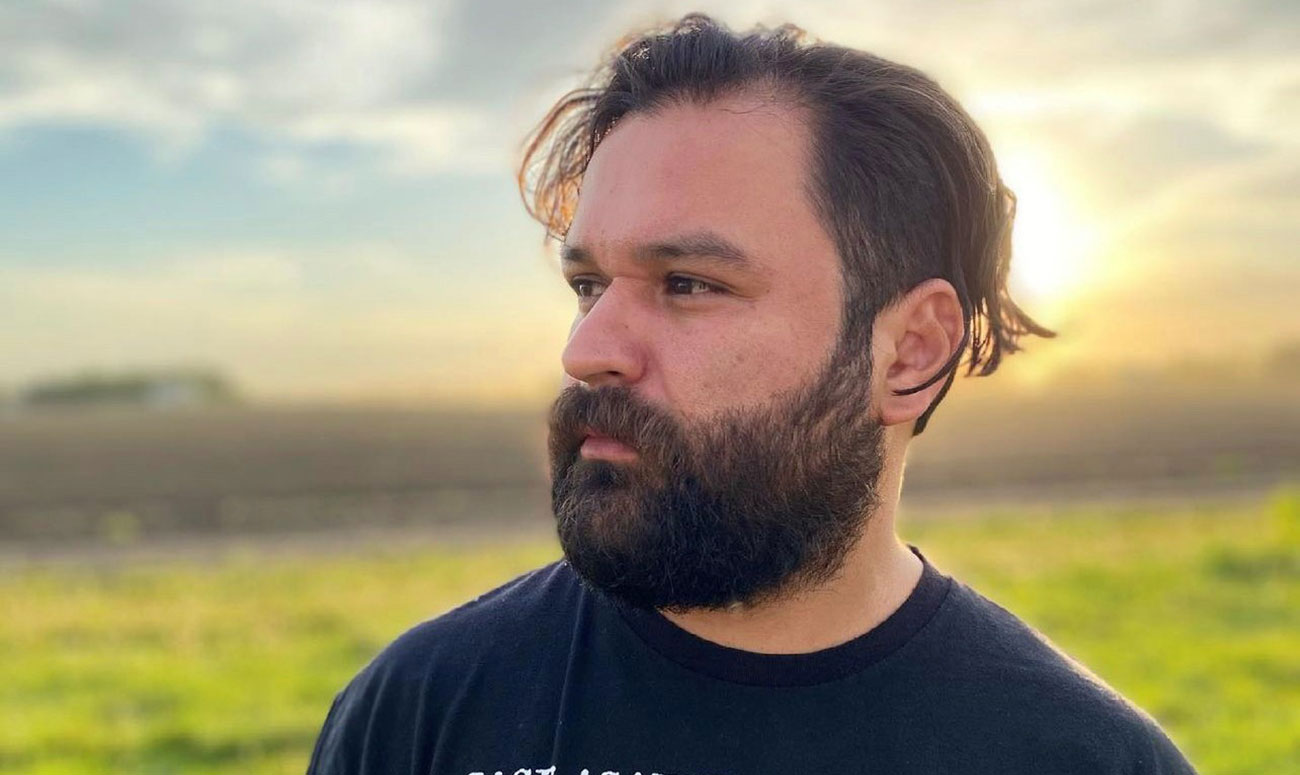YVC alum launches career in television and film
Growing up in a turbulent area of Los Angeles, Cody Lightning was exposed to both the positive and negative aspects of big city life at a young age. The environment led him to struggle with addiction and at age 15, Lightning earned his GED and set out to travel the world. With stops across the United States and Canada, Lightning spent much of his time working on projects with friends, skateboarding professionally, and working with at-risk youth from the reservation of Maskekosihk in Alberta, Canada.
In 2010, Lightning moved to Yakima and enrolled at Yakima Valley College to take the next step in his life. Inspired by the care he received during his time in a treatment center, he began taking courses in YVC’s Substance Use Disorder (SUD) program.
Being a student at YVC gave him the chance to experience new things, including participating in the YVC drama program’s 2011 production of “Our Lady of 121st Street.” Lightning was introduced to the program through Alicia Bickley’s Intro to Theatre and Beginning Acting classes. Despite no prior stage experience and no knowledge of the play, he was quickly cast as Rooftop, a Los Angeles radio personality whose drug abuse and womanizing has cost him his marriage and his self-respect. Lightning’s portrayal of Rooftop was hilarious, tragic and very real.
Lightning credits his experience at YVC with helping make him a more well-rounded performer.
“Alicia had a big impact on me,” Lightning said. “Her Intro to Theatre course was one of my favorite classes while attending YVC. I’ve been involved in film and TV since age 5, when I acted in “Smoke Signals,” however, this was my very first play.
”Unfortunately, his studies were put on hold when his father became ill and additional challenges arose with the processing of financial support from his tribe. Returning to Canada, where he was born Lightning began working with tribal youth, sharing tools he learned in YVC’s programs to help advocate and build resources to promote a better life on the reservation.
“Practice as much as you can at whatever craft you want to pursue. There are times when there’s good work coming in and other times when things are slow. Students should stay positive and focused on their long-term goals.”
— Cody Lightning
Lightning also refocused building his career in television and film, while continuing his work with tribal youth. As opportunities for Indigenous people expand, Lightning is landing more roles and using his visibility and ‘celebrity status’ to help native youth.
That visibility is growing with his performance in Marvel’s “Echo” television series, which will be available later this year on Disney+. The limited series features a number of actors with Native American heritage, something that Lightning is especially excited to be part of.
According to Lightning, Indigenous people have been historically underrepresented in art and cinema, with roles often only being available in traditional or period pieces. As the industry evolves and grows, he’s seeing more opportunities for Indigenous actors in a greater variety of films.
“For a long time, there was maybe 1 or 2 projects per year that had an Indigenous or Native theme,” says Lightning. “There weren’t a lot of contemporary stories in TV or film being made. “Smoke Signals” was one of the first contemporary, Indigenous-focused films that really showcased what people are experiencing in the here and now.”
Even though there are more projects happening, Lightning believes there is still work to be done and is focusing his energies on writing and directing.
“I reached a plateau and things felt sort of stagnant,” says Lightning. “I don’t have a traditional Indigenous look, and I wasn’t landing a lot of roles. So, I started working on writing projects with my friends for the roles I wanted to create and play.”
This summer his debut film, “HEY VIKTOR,” will be shown at the Tribeca Film Festival. He’s also working on two TV shows that he classifies as showcasing “dysfunctional humor.”
“Indigenous people have experienced a lot of trauma,” says Lightning. “Humor helps our people heal. There’s a lot of really dark content that I’m working on, but by sharing laughter and humor it helps us heal.”
To other students wanting to enter the arts, Lightning encourages them to be persistent.
“Practice as much as you can at whatever craft you want to pursue,” he says. “There are times when there’s good work coming in and other times when things are slow. Students should stay positive and focused on their long-term goals.”
